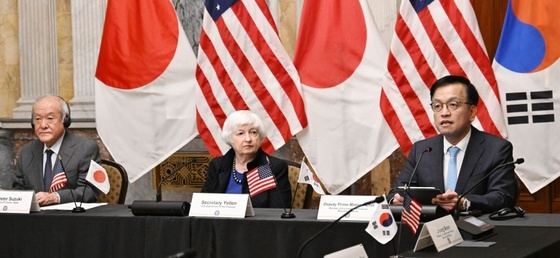입력2006.04.03 01:14
수정2006.04.03 01:17
오이겐 뢰플러 < 하나알리안츠 사장 >
스포츠 경기,중소기업,경력이나 자신의 인생을 돌아볼 때 '운'(運)이라는 요소가 매우 중요하게 작용한다는 것을 알 수 있다.
흔히들 중요한 성공사례에 대해서도 운이 50% 이상 기여한다고 하는데, 이는 운이 능력이나 노력보다 중요하다는 의미일 수도 있다.
물론 운이 좋아도 능력과 노력이 없어서 성공하지 못하는 사람들도 많기 때문에,이런 얘기는 편견일지 모른다.
이런 점이 '운이란 용감하고 능력 있는 자들의 것'이라는 또 다른 속담을 만들어낸 것으로 생각된다.
하지만 여전히 우리는 운의 힘을 간과할 수는 없다.
전문 트레이더이면서 미국 뉴욕대 수리과학부 부교수인 나심 탈레브는 자신의 저서(Fooled by randomness)에서 금융시장이 '운 좋은 바보들'을 양성해낸다고 말하고 있다.
'운 좋은 바보'들이란 진정한 투자기술 없이 순전히 운에 의해 큰 성공을 거두는 투자자들을 말한다.
그들은 투자 성과 덕분에 승진하면서 더 많은 연봉과 보너스를 받게 된다.
성공으로 말미암아 더 큰 자신감을 갖게 되고 동료 상관 고객의 신뢰를 얻는다.
성공이 더 큰 성공을 가져오는 선순환을 경험하게 되는 것이다.
이는 사생활에까지 이어지기도 한다.
예를 들어 사회적 평판이 좋고 급여수준이 높은 직장은 매력적인 배우자를 만날 확률을 높인다.
하지만 운이란 것은 운 좋은 바보들이 예상조차 하지 못한 특수한 시장여건에 의해, 수년간의 투자이득을 잃게 되면서 한순간에 사라질 수 있는 것이다.
이런 실패가 꼭 개인적인 비극으로 이어진다는 것은 아니다.
운이 따랐던 시절에 많은 부를 축적해 직장을 잃은 후에도 윤택한 생활을 누리는 경우가 있기 때문이다.
또 그들이 직장을 잃게 된다는 보장도 없다.
그 동안의 명성이 너무나 확고히 자리잡고 있어 이런 실패에 영향받지 않을 수도 있을 것이다.
운 좋은 바보들 뒤에 숨은 진실을 보지 못하고 사람들은 이들을 잠시 불운을 겪고 있는 대단한 능력의 소유자들로 여전히 바라볼 수도 있다.
일반적으로 우리는 그것이 성공이든 벌이든 자신의 능력이나 노력에 합당하지 않은 결과를 얻게 되는 것은 정당하지 않다고 느낀다.
하지만 항상 정당하고 평등하기엔 인생이 너무 짧다.
삶이 영원하다면 모든 사람들은 다른 요소들을 극복하고 궁극적으로 자신의 능력을 입증할 수 있을 것이다.
이외에도 평등을 방해하는 인위적인 요소들이 있다.
절대주의나 봉건주의 사회에서는 왕이나 지배계급이 특수한 권리를 누리면서 절대적인 권력을 휘두를 수 있었다.
이런 맥락에서 18세기 절대왕정 시대의 유럽 계몽주의 철학자들이 가장 강력하게 요구했던 것이 평등과 정의였다는 사실은 전혀 놀랍지 않다.
모든 시민은 법 앞에 평등해야 하며 출생에 의한 특권은 없어야 한다는 등의 것들이었다.
그러나 이들이 요구한 자유는 삶의 모든 면에 대한 모든 사람의 평등을 의미하지는 않았다.
반대로 자유주의 철학자들은 모든 사람들이 필요 이상의 정부 간섭 없이 자신의 인생과 재능을 개발할 수 있길 원했다.
개인마다 능력과 목표가 다르기 때문에 이는 자연스럽게 임금과 부, 생활방식의 현저한 차이를 가져오게 된다.
현대 과학은 성장기 아동의 사회적 환경이 천부적인 차이보다 덜 중요하다는 것을 보여준다.
평등이 바람직한가의 문제에 앞서 평등은 가능하지 않다.
더불어 그 누구도 사람들이 대체적으로 평등한 환경에서 살았지만 생활수준이 낮았던 산업혁명 이전의 시대로 돌아가고 싶지는 않았을 것이다.
좀 더 철학적인 관점에서 보면 운의 힘은 흔히 불공평한 결과를 초래하는 듯하지만 궁극적으로 선천적인 차이를 상쇄하면서, 불완전하지만 나름대로의 평등을 추구하는 자연현상일지도 모른다.
많은 이상주의자들에게는 수용하기 힘든 사실이겠지만 자연은 평등을 지지하지 않는다.
우리네 인생이 자로 잰 듯이 살아지지는 않는 것이다.
------------------------------------------------------------------
Luck, Liberty and Equality
Wherever we look, at sports competitions, big and small businesses, careers or our personal life, luck is a very important factor. It is a common saying that the contribution of luck even in big success cases usually exceeds 50%, meaning luck is more important than capability or diligence. Of course, this is a bit biased, as even with lots of luck many people lacking capability and diligence would not succeed. Presumably, this is the rationale for another proverb, which says that luck goes with the brave and capable.
Still, we shouldn't underestimate the random forces of luck. In his book "Fooled by randomness" Nassim Taleb, a professional trader and adjunct professor at New York University's Institute of Mathematical Sciences, shows how financial markets can create "lucky fools". "Lucky fools" are investment managers and traders, who lack true investment skills and risk management capabilities, but at the same time are extremely successful simply because of an extended string of luck. Because of their trading performance they get promotions, higher salaries and bonuses. Success makes them more self-confident and wins them the confidence of colleagues, superiors and clients, creating a "virtuous" circle of success creating even more success.
This can spill even over to personal life. For example, a prestigious and highly paid job can result in better chances to marry attractive spouses etc. However, luck can end abruptly, and the "lucky fools" might loose all the investment gains they made over years, if an extreme market situation strikes, for which they were not prepared and might not even have thought about. Not necessarily, this will end in a personal tragedy: such people might have made so much money during their lucky strike, that they can live a very decent life even after having lost their job. And not necessarily they will lose their job. Their reputation can be so established that they can survive. Not seeing the truth behind the "lucky fools", people might still consider them as really capable persons, who just recently were hit by bad luck.
Generally, we perceive it as unfair, if a person is not awarded the result be it success or punishment one deserves based on his or her actions and true capabilities. However, human life is too short to be fair all the time. If life was eternal, everyone's true capabilities would finally be proven and win over all distorting influences of luck or bad luck. There are other manmade obstacles to fairness.
In feudal or totalitarian regimes some people like aristocrats or the ruling class secure preferential treatment and often wield unlimited power. No wonder that fairness and justice were central demands of the enlightenment philosophers in 18th century, when Europe was under the reign of absolutist monarchies, Every citizen should be treated equally before the law, no one should enjoy any special privileges derived from birth or whatsoever. However, the liberty these philosophers demanded was not meant to result in equality among all citizens regarding other aspects of life. On the contrary, liberal philosophers wanted everyone to be free to develop their life and talents without being more than necessary constrained by the state.
The expected result is a vast difference in income, wealth and life styles, as individuals have different capabilities and goals. Modern science shows that the influence of the social environment, in which a child grows up, is much less important than inborn differences.
Even disregarding the issue whether equality between all individuals would be desirable, equality simply is impossible. And, no one would seriously want to go back to the ages before the industrial revolution when living conditions around the world were very equal but very low and full of hardship. As economic historians point out, in the 16th century peasants in for example China or England basically had the same standard of living, even though their life styles were quite different.
There is another more philosophical aspect. The forces of luck, which often seem to wield unfair results to us, may in fact be a force of nature's ultimate even so incomplete fairness, as they can override inborn differences between individuals. Even if many idealists find it hard to accept, equality is not something supported by nature. Life without randomness would not be the human life we know.











